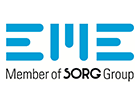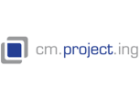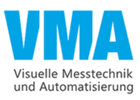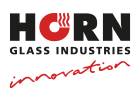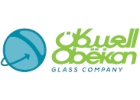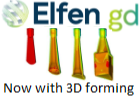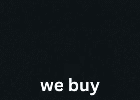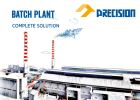5 years ago, LiSEC took over Hungarian company GLASTRONiC with the objective of separating the used machinery business from the new machinery business in Austria, and of establishing a separate company for this purpose in order to meet a constantly increasing demand.
Johann Stöger and Zoltan Szekernyes, who has been a member of the management team since 2019, have been managing GLASTRONiC since July 2020. This is an ideal partnership: Mr. Stöger focusses on sales and the commercial aspects of the business, while Mr. Szekernyes’ technical expertise enables him to focus on production and quality.
ABOUT GLASTRONIC
GLASTRONiC was founded by Jüllich Glas in 2001. The company has its headquarters in Oroszlány, Hungary and has a total of 30 employees. LiSEC completed its takeover of the company in 2016. Two years later, a new hall was added, and the year after that another hall was rented.
GLASTRONiC is split into two divisions: New machinery/steel construction and used machinery. LiSEC products such as ASM and MSA, glass storage racks, and other logistics frames are manufactured at the site in Hungary.
Used machinery is purchased, cleaned, refurbished, put into operation on site, then dismantled and shipped to the customer. The company generated revenues of €5.5 million in 2020.
In an interview, Mr. Stöger talks about the history of GLASTRONiC, corporate processes, sales markets, his goals, and much more.
LiSEC: In your previous role as regional sales manager at LiSEC, you were responsible for new machinery sales. What was it like transitioning to the company management of GLASTRONiC, and therefore to selling used machinery?
Stöger: The process of selling used machinery is very different to that of new machinery, not only in terms of customer needs and requirements. As long as we take a certain delivery window into account, new machinery is always available, whereas in the case of used machinery, the specific type required might not always be immediately available. Despite that difference, the move was straightforward. It goes without saying that everyone is feeling the strain during these unprecedented times. Nevertheless, the atmosphere at the company is generally positive.
LiSEC: Can you describe the process of purchasing used machinery?
Stöger: The process often begins with a customer showing interest in new machinery. It is standard practice for the vendor to enquire if there is an older LiSEC machine that is to be replaced by this new machinery and if it can be repurchased. If the customer agrees to this, the vendor gets in touch with me. An initial asset valuation is then carried out based on the age of the machine. If the customer shows interest, they either accept the offer directly or a service technician visits the customer to determine what would need to be done to ensure the machine is serviced properly. Of course, the costs are decisive in this regard and serve as a basis for further negotiations with the customer.
LiSEC: Can machinery be too old to be purchased?
Stöger: The hardware of LiSEC machines lasts forever, but the control components in machines installed before the year 2000 can no longer be purchased. When a control system is retrofitted, you usually have to replace all of the drives, cabling, control cabinets, etc. That would be too costly and wouldn’t make financial sense for anyone - that's why we don't buy those machines.
LiSEC: Can a customer sell an old machine without buying a new one?
Stöger: Yes, there is no obligation to purchase new machinery. Customers often get in touch with us to tell us that they have something they would like to sell. We follow the same procedure in these cases: We carry out a valuation of the machine based on its age, the service technician assesses the machine if the customer shows interest, and then we enter into negotiations with the customer etc.
LiSEC: Does GLASTRONiC also purchase or look for special-purpose machines on the back of a specific request from individuals?
Stöger: Yes – our network is huge, so we are sure to find what customers are looking for. For example, a few months ago, a major customer had an emergency situation and needed a sealing machine urgently. So we looked all over Europe for one. We managed to find and refurbish a suitable sealing machine and install it at the customer’s site within three weeks. The customer was happy, as they had a fully functional machine in their production hall within three weeks.
LiSEC: What regions does GLASTRONiC sell used machinery to?
Stöger: We sell them the world over. We recently sold a cutting table to a customer in South Africa. We’ve sent an insulating line to Australia, two cutting tables to the UK, an insulating line to China, a KBF to Slovenia, a bending machine to Germany and a press to South America. The only place that is difficult to sell to is America as they have different electrical specifications there and the machinery needs to be supplied according to UL guidelines. If we were to supply a used machine to a customer in the United States, we would have to reverse the entire control cabinet, which wouldn’t be profitable.
LiSEC: Is GLASTRONiC a good fit for LiSEC’s strategy?
Stöger: We are a very good fit for LiSEC’s strategy because LiSEC does not offer entry-level machines. With GLASTRONiC on board, we have the ability to offer LiSEC products at an entry-level price - high-quality, properly refurbished machinery with state-of-the-art PCs whenever possible (upgrade available for purchase). That way, the customer can acquire an excellent machine that will last for a good 10-15 years.
LiSEC: What goals have you set yourself for GLASTRONiC?
Stöger: Our main objective is to ensure that our customers are satisfied. We need to continuously improve and refine our operations and processes so that we can achieve that. Another goal is to develop an international purchasing strategy for used machinery.



